Carl Craig Interview Transcript
News
New Reviews
Reviews Archive
Interview Archive
Hall Of Fame
Links
Contact


Tell me about the new deals that your label Planet E arranged to distribute Innerzone Orchestra's Programmed album.
I'd done certain songs for the album at the beginning of last year and just kind of worked it to see who was my best prospect. And straight off the bat it was Talkin Loud and Astralwerks. Talkin Loud definitely for what they are doing with Roni Size and stuff. And then Astralwerks because for things electronic-oriented they have a better results than any other US label. Also Planet E has a distribution deal through Caroline and we've already worked with them for the last year and a half or so, so it was a good idea to continue that relationship with their label side, Astralwerks, for the American release.
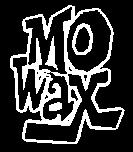
Mo Wax reissued "Bug In The Bassbin" a few years ago, so was that the beginning of this project?
Yeah, you know, it started mainly when James Lavelle and I came to an agreement that Mo Wax would reissue the record and we would get a small budget to do my own idea of a remix, the "Jazz Mix." That's where the whole idea of expanding the Innerzone Orchestra came from, was just me getting into doing that mix.
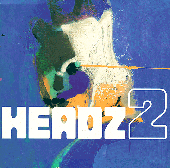
Is the "Jazz Mix" the same as the version included on Programmed?
It's kind of an edited version, because it starts off exactly like the original and then it morphs into the "Jazz Mix." So it goes from the drums and bass line of the original, to the drums of the "Jazz Mix" and the bass line of the original, to the drums of the "Jazz Mix" and the bass line of the "Jazz Mix." It just kinds of shows the evolution of the track for the people who knew the song back in 1992 or 3 or whenever it was made originally.
Before it was reissued by Mo Wax was it still available from Planet E?
It originally came out on a compilation called Intergalactic Beats, the vinyl version of that. And we sold that in different coloured vinyl versions, as a double on grey marble, and as a single on red, blue and all kinds of different colours, up until maybe 1994/5. So maybe until a year before Mo Wax put it out we were still selling it as part of our catalogue, and it was still selling quite well. So it wasn't a song that was dormant when they picked it up. It was a track that had made it's bones on the drum & bass side of things, or the beginnings of the drum & bass side of things, as well as on the techno side of things. It just got more hype through the drum & bass outlets in the UK to where it actually got picked up.
Yeah, I was reading about that and when I interviewed some of these guys, like 4 Hero, I asked them about this track. When did you find out that the English DJs were into playing your track at double speed?
It was funny because I didn't realise what was going on. I had met Goldie years ago, through Sarah Gregory who I worked with in the past, and they used to do a collaboration of art. Sarah was a painter and Goldie used to do a lot of tagging, graffiti. Goldie decided he was getting into making music and he had called me one day. And we got reacquainted, and he said he wanted to do a mix of it. And at the time when he had called I wasn't so interested in doing any remixes of any of my material. And I still don't have the best view of remixes, but you know, it was still something that was pretty sacred to me. And I didn't let it go through until later when it became more feasible to do something that was a little more beneficial in some ways, in the aspect of what I wanted to do with the record. I then agreed to do remixes only by people who I really wanted it to have it done by. And I wanted Goldie to do a mix but by that time he was onto some other shit, so it didn't happen.
You have a lot of connections with people in Europe and England on the techno side, when did you start meeting up with people from drum & bass?
I knew Fabio and Grooverider a little bit before I realised what was happening with drum & bass, so I would have to say that was about '94/5 or so. Then later I had met Photek and Dego from 4 Hero, those cats. It was like, the whole drum & bass thing on any level of music, in the same way as techno or house or whatever, it doesn't make a difference if you're making jazz or if you are making country and western shit, you know, it's like "hey we're all doing music." That is the greatest thing about meeting anybody. So I can't really document a time as being an extremely important time of meeting anyone in the drum & bass scene because we're all alike in some ways, no matter who you make.
You've made music with breaks and without breaks. Did "Bassbin" inspire ideas of possibilities for you?
The concept of what to do with drum & bass is great, I just don't think that I can do it. They take concepts of what I did, as well as concepts of what Derrick did, or concepts of what Shut Up & Dance did, and made it happen and I think that is really innovative and amazing, you know. And more power to what they do. But because "Bassbin" was considered like a blueprint in some way to the development of drum & bass it didn't really make me think: "I'm going to jump on the bandwagon now and make drum & bass just because I had made this record that they play double time." If I tried to make drum & bass I couldn't make it. It's just not in me.
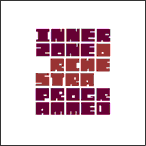
The other element of that track was looking back to '60's/'70's fusion. How do you see your growth from being a one-man band in the studio to having live musicians, and having this feel of musicianship rather than programming?
I wanted to go further with my music than what I had in the past. It was very beneficial to my career to start out and proceed with what I did and the way that I did it, you know. Because I didn't have to depend on anyone else, I could just do whatever I needed to do at home and make what I thought was great music. And by me doing that it paved a way to define what my career was to myself as well as to other people.
- Now it is time for me to expand. As a producer there is a large potential of where you can go. You can be a bedroom producer and just produce your own shit for the rest of your life, or you can get out there and try to do something more interesting with other people, and be able to use their ideas to come up with one common product. Which has been the production technique ever since music has been conceived. It has always been "who are the greatest musicians?" You put 'em together and make this awesome band, which is wonderful.
- But I think my history is a little bit different because of the fact that I didn't start out in the same way. So I can listen to things on a level of how you can do things with electronics, and maybe be able to coach them into doing something that is very similar to what I've been doing but with their ideas as well. So we can get this awesome concept that will be above anything that might have happened before. In time though, I'm not saying we've gotten there. But with the musicians I'm working with, it's a large possibility of that happening because I think they are some of the greatest musicians that are around.
Tell me about your musicians.
Francisco Mora and Craig Taborn are the main part, and we now include Recloose, who is the DJ on the tour. What I try to do with Innerzone on vinyl, as well as on tour, is to integrate these various elements into something that will actually work. Where in the past Herbie Hancock has used a DJ in "Rockit" doing his scratch thing, you know. And those aspects of what happened with Jazzmataz, with hip hop and jazz musicians. And everyone has tried this whole integrating jazz with electronics thing into it just being a one time thing that happens on this kind of crazy pop level.
- But I think my history is a little bit different because of the fact that I didn't start out in the same way. So I can listen to things on a level of how you can do things with electronics, and maybe be able to coach them into doing something that is very similar to what I've been doing but with their ideas as well. So we can get this awesome concept that will be above anything that might have happened before. In time though, I'm not saying we've gotten there. But with the musicians I'm working with, it's a large possibility of that happening because I think they are some of the greatest musicians that are around.

- What I'm trying to do is similar to what Herbie did back in the day in the '70's. And to what Miles had done back in the day in the late '60's/early '70's, where it just had the feel that was timeless, that was amazing. And they were able to integrate aspects of modern technology at that time. My whole outlook isn't to make a pop record. My whole outlook is to make a classic, timeless piece of music that I could pick up thirty years from now and be proud of it, as well as the average person could pick up and say "well fucking shit, this is amazing." Or maybe today they won't get into it but in five years time it might be like "damn, what the fuck was he on? Was he on some kind of drugs when he was doing this shit?"
- You know, just doing something that is against the grain of what has been done, but borrowing concepts and ideas from what has been done, but taking it a few steps further. I think one of the other groups that is doing something kind of similar to that whole concept is Tortoise. They took another avenue to what was happening with the whole Can thing and elevated that to a '90's, end of the century concept.
- It's like when Miles would get on stage and everyone would just play to a certain height in the music and then Miles would hit a note and take everyone to a frenzy. That's where we're coming from more than having everyone dressed in sequined costumes and having everyone do the same dance steps (laughs)...the same old same old kind of thing that happens in music. Or even with rock music when you have just the guitar soloist in front of it. Everybody in our band is doing improv. We have a blue print for what the songs are supposed to be but everyday it can be something different.
Are you playing electric piano in this?
My whole role in this is that I am the programmer, as well as playing all the bass parts. Craig plays all the keyboards and electrics.
I was a teenager in the 70's and was into the jazz-fusion after Miles, like Al Dimeola, Return From Forever, Jan Hammer etc. Then punk rock came along and it was about not being a trained musician and not how fast you could play. Is there any lingering attitudes in how you listen to '70's music?
I didn't grow up in the '70's. In 1979 I was ten. So a lot of what was happening with Miles and things like Jan Hammer and Jeff Beck live, or Jan Hammer morphing into Miami Vice, it was more like secondary history to me than first hand experience. And the whole punk thing, there were aspects of it that I was into but my tastes were developing from the Detroit radio, where we didn't get a whole lot of punk anyway because the city was based around Motown and soul and that kind of shit. I think the non-musician part of things had more to do with the development of music of the late '80's and into the '90's with techno and the whole revolution of DJ-becomes-songwriter/musician scenario.
- With Innerzone Orchestra the concept isn't about "Craig's a bad keyboard player so we got to let him solo all the way through." There are a lot of solos that are happening with Craig and there's a lot of really amazing stuff that he's doing, but it's less the technique and more the feeling. It's all about the spirit. That's the thing that I get in Miles' music, not the fact that Miles is a bad ass trumpet player. Because from my experience and from what a lot of people who are into the whole jazz music scene tell me, is that most of what Miles hit was mistakes. He made his impact so far in the past, in the '50's and early '60's, where he didn't have to play anymore because he was Miles. You know how bad he was playing. It just came down to how Miles played it, not what Miles played.
- So that spirit and that concept of the groove and of the whole quality that comes from your gut and from your heart, like with funk or blues or most soul, is just you can feel the person's anguish, you can feel what they are into at the time. With Innerzone Orchestra I want it to be a time that people can feel. I want them to feel the groove is on. The groove may not be like James Brown, but it is still funk and it is still going to the root of things, and it still has a lot of the spirit of the players as well as the production of the music.
As you go through the sequence of your cd you get the feeling of messages. You have the phone message at the beginning. What is the overall concept of the voice bytes and the things throughout the tracks?
You think you are somewhere but you really ain't there. You think you are buying a techno record but it ain't techno. You might listen to it and think it is a jazz record, but it ain't jazz. So the realisation that was for real a wrong number - some guy calling my house. (laughs) I have no idea who that person is, calling for his woman or his man or whoever it is. He thinks he's calling home but really he ain't at home. He's just somewhere else and that is the concept of this record.
The tracks seem like different scenes of a movie. In "Manufactured Memories" you have someone speaking European voices, you have someone speaking Spanish.
It's all Dutch.
Isn't someone saying "buonos noces"?
Oh yeah, I'm sorry, that's Francisco.
So are you switching scenes or going different places there?
You can kind of think that. With "Manufactured Memories" it's just the aspect that all music is universal and this is a universal song. The concept is universal, it has no barriers. So a lot of people in America, or Canada, or Mexico, or Japan don't know what Dutch sounds like. To me it sounds like some Martian shit, you know. So it's like, that knocks down the boundaries of what is usually in some shit. Yeah we've got Francisco saying "good night little child" in Spanish, which people would understand what it is, but if I could have I would have had every one of one hundred languages in the song to show that there was completely no boundaries to this kind of stuff.
In the title track "Programmed" you have the operator saying "hang up and try again," and you had spoken word about consuming in another track, which concern societal programming.
Yup, that's right. Basically that part had more to do with the end of "The Beginning Of The End," even though where it is on the id. The concept of "The Beginning Of The End" is the end of the world, the whole concept that there is no definite future after Dec 31st, 1999. The whole militia thing where people are storing up goods, trying to make sure that they are gonna have enough food because they really think that this could be some shit that goes down. This kind of insanity that happens.
- The "you've got the wrong number" or "please hang up and try again" kind of thing is just the concept of just another crazy person knocking the phone off the hook, not really knowing where he is, kind of not really paying attention to where he is, kind of being in some other place and not knowing what to do. Usually when you get that kind of answer through the telephone company it's like you've done something wrong or you've made a mistake, or you don't know why it's doing that. So that's how it came in.
- And then "Programmed" goes into the whole concept that we're consumed to consume. We're programmed to go out and buy everything that we can buy. We're programmed by the government, by the media, by everybody out here. And we listen to everybody, but who are we supposed to listen to, what is the best thing for you. Are we living in a situation that is not so different from what Russians lived through with the Communist system. You know the bizarro world of Communism, where instead of the government telling you to stand in line to wear something, major companies are telling you to stand in line to wear something with a barrage of images and various tactics that take control of you.
Is the next sequence of jazz tunes a return to a more personal vibe you are talking about? The next track is "Eruption," so after this apocalypse will there be a return to more human values?
You can look at it like that, but that wasn't my concept of why I put "Eruption" in there. Switching it over to "Eruption" was because it still had the energy and mental wildness that are in "Manufactured Memories" through to "Programmed." It just happens to be less electronic and more real instrument-oriented. When I put this together I wanted to put all the energy up front. It's almost similar to how someone would put an r&b record together, but it's also against how a person puts an r&b record together (laughs). Usually they'll put all the hits up front or they'll give it to you where they'll put energetic tracks then some ballads in the middle, then it will build up to energetic tracks again and might drop down to ballads again. So you're going on this kind of sine wave. Where what I wanted to do was put all the energy at the front and then bring it down towards the end of it, to something that might be considered more flat-lined. In the sense of "Galaxy" and "At Les," where you can almost say they are contemporary, typical in some way, but not.
- With Innerzone Orchestra the concept isn't about "Craig's a bad keyboard player so we got to let him solo all the way through." There are a lot of solos that are happening with Craig and there's a lot of really amazing stuff that he's doing, but it's less the technique and more the feeling. It's all about the spirit. That's the thing that I get in Miles' music, not the fact that Miles is a bad ass trumpet player. Because from my experience and from what a lot of people who are into the whole jazz music scene tell me, is that most of what Miles hit was mistakes. He made his impact so far in the past, in the '50's and early '60's, where he didn't have to play anymore because he was Miles. You know how bad he was playing. It just came down to how Miles played it, not what Miles played.
So are you playing tracks like "Galaxy" and "Basic Math" in your gigs and are they changing from what you recorded?
Galaxy I wasn't playing before, but "Basic Math" was definitely part of it. In the aspect of how it ends up changing, I think it changes because of the elements that are involved in this mix of tours. Because Recloose is on, there is aspects of his accompanying the band, as well as his improvising with cuts and sound effects that can take us to a higher weight. Because what we are doing with these songs aren't choreographed.
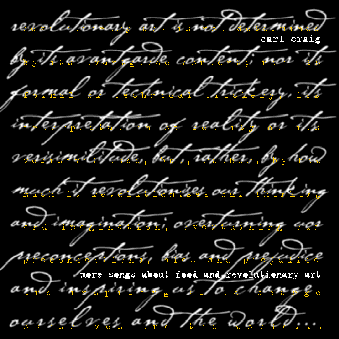
- So by taking something like "At Les" it puts it into the concept that "this is classic music." And if I want to cover songs I might as well cover my own songs, as well as cover other people's songs. To show that it has that validity. So somebody can say "fuck, I really like "At Les" by the Innerzone Orchestra" and they'll go back in my history and buy More Songs and say "oh "At Les" is on this too?" And they hear it and it is like a totally different version and it's like "wow this is kind of interesting." And it might take them to go back more and find out the history of what's happening with it.
Was "At Les" released before?
It was on More Songs About Food and Revolutionary Art, but it was an electronic version of it. The concept that I have about music, is that music is classic, is universal, it should go past today. And within the whole concept of jazz you have what are considered standards. So someone might play (Coltrane's) "Love Supreme" because it is considered a standard now and everyone would know it. Where a lot of people look at techno and electronic music as being more of music of today, and it doesn't having any validity in the future. It is always going to change. It is always making something sound old. It is always considered like throwaway music, in some ways, to a lot of people that are out there that can say "oh that techno bullshit." Or just "the real thing is in the guitars, rock & roll kind of stuff."
There was always an element of jazz in Detroit techno. And people called certain styles "future jazz." How do you see the techno in the Innerzone Orchestra?
Um, I don't know. For as much as I try to be individual, my music, no matter what I do people are going to look at it as techno in some way or another. Some of it more forced techno, which isn't really forced, it was just how I was feeling at the time. But the obvious techno-sounding things are like "Programmed" or "Architecture."

You mentioned "Architecture," will you be working with Richie Hawtin again?
Yeah, I thought that track was fun. It was a great experience to be able to integrate what Richie does in the aspect of modular synthesis and minimalism into what has become a very interesting collaboration. It also squashes a lot of bullshit that as always happened around this Detroit/Windsor thing.
Will there be any singles from this album and remixes?
The plan is that "People Make The World Go Round" will be a single in England with a remix from myself, Moodymann and Jay-Dee from A Tribe Called Quest's production team (part of the Ummah, he has a group called Slim Village).
Was that a Stylistics tune or someone else's?
Exactly. Our version was based off the Stylistics' track but I don't really know any other person's version of it. I know I had to have grown up with it, and when I heard it recently it pretty much made me cry (laughs). The strings and all that kind of stuff. I was on a search for it and I couldn't find the original lp version with the full strings, so I decided to make my own version of it. Hence this is what this is.
Will there be other releases from you on Planet E or other places?
Yeah, not in the next couple of months but there will be on Planet E in the future. As well I am producing an album by a group called Custom Blue which is like a Crosby Stills & Nash-type group. They are a young group who do an interesting hybrid of acoustic guitar, singing and electronics stuff.
Who are you doing that for?
Island.
Are they an American band?
No they are English.
Any remixes you've done that aren't out yet?
I'm working on a mix for Underworld, I can't remember which tune. But my main focus right now is on what is happening with Innerzone and the live stuff.
Will you continue to work with SSR?
SSR, I'm not totally sure what I am going to do with SSR. It was great while it lasted but my whole thing right now is to find a company that I can definitely grow with, creatively. It is hard working with a label that has musicians running the label. Especially being an artist with the capacity of stuff that I'm doing right now, the best thing is to have people that aren't too opinionated. Like for instance when they heard this album they couldn't see past the fact that Miles had done it in the '70's. So I saw more shortsightedness than it being something that could really help with what was going on with the project. A label like Talkin Loud, I felt, appreciated what was being done creatively, on a listener side of things rather it being on the musician side of things.
I've noticed people talking about the New Wave era music that people in Detroit were into. And I heard that you play Visage's "Fade To Grey" in your sets?
Oh yeah, yeah.
What do you mix it with and do you speed it up?
Yeah of course, it would be plus eight. But I don't play it at 45, but it's about 110 or something so it has to be pushed up. Most of the time you do the mix with tracks that just have straight beats because of the computer thing. You can mix it with something that has Latin percussion or you can mix it with something that starts off a bit straighter but then goes off into some break beat-y kind of things.
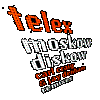
- Where back then, it was like a record really had to be really fucking good almost to come out! Like with the new wave, like the B 52's or something. It had to have something about it, like Was Not Was or even with the whole emergence of British new wave like Human League or Yazoo or Depeche Mode or whatever. It was something that was interesting about it for even anyone to sign it. And it helped the clubs happen a bit more, as well as it helped radio to develop a new breed of producer like myself. That could be influenced by, you know, white European music as well as black soul music like Stevie Wonder. And this is the guy who grew up, on the west side of Detroit, which would be considered, even though my family is middle class, would still be considered the ghetto. I think that is very revolutionary to even be able to have that opportunity to be in influenced by music of different variations.
And you remixed Telex...
Yeah, "Moscow Disko."
So what was Detroit radio like at that time? Did they play all this cold wave and new wave type synth pop?
We used to have a few different stations that were great at that time. When I grew up I thought radio was probably the most interesting because of what was happening musically. I think it had a lot to do with the fact that there weren't as many independents that were going around as there are now. You can find like fucking a hundred records a week on a hundred different labels almost (laughs).
- And what we have now is unfortunately controlled by large, major companies that only care about the bottom line, which is a large profit. They are all programmed and it's like, back then, it seemed like it was a little more free-spirited. And the record industry was different back then too because they took more risks with music from aspects of putting fusion records out and things like that, to aspects of being able to get a Was Not Was record that was on Island. Island was even helping out, because they were extremely strong at the time on what was happening on the whole club/disco level of things. Also clubs controlled radio then, where now radio controls clubs.
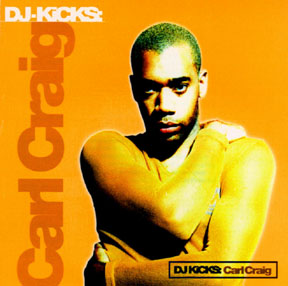
Jockey Slut Interview 1996
Was it college radio or professional radio?
Commercial radio. We had WLBS, which was a sister company to New York's WBLS, so we got a lot of what was happening on the New York circuit as well as what was happening on the Detroit circuit. And we got WDRQ at the time that was a little bit more commercial. You know they had The Wizard on there, who was Jeff Mills and he used to spin just any and everything that was funky. And we had GPR which was Electrifying Mojo. And we had Dave Dixon on the radio and he was playing interesting stuff. It was just a nice little diversity on the airwaves.